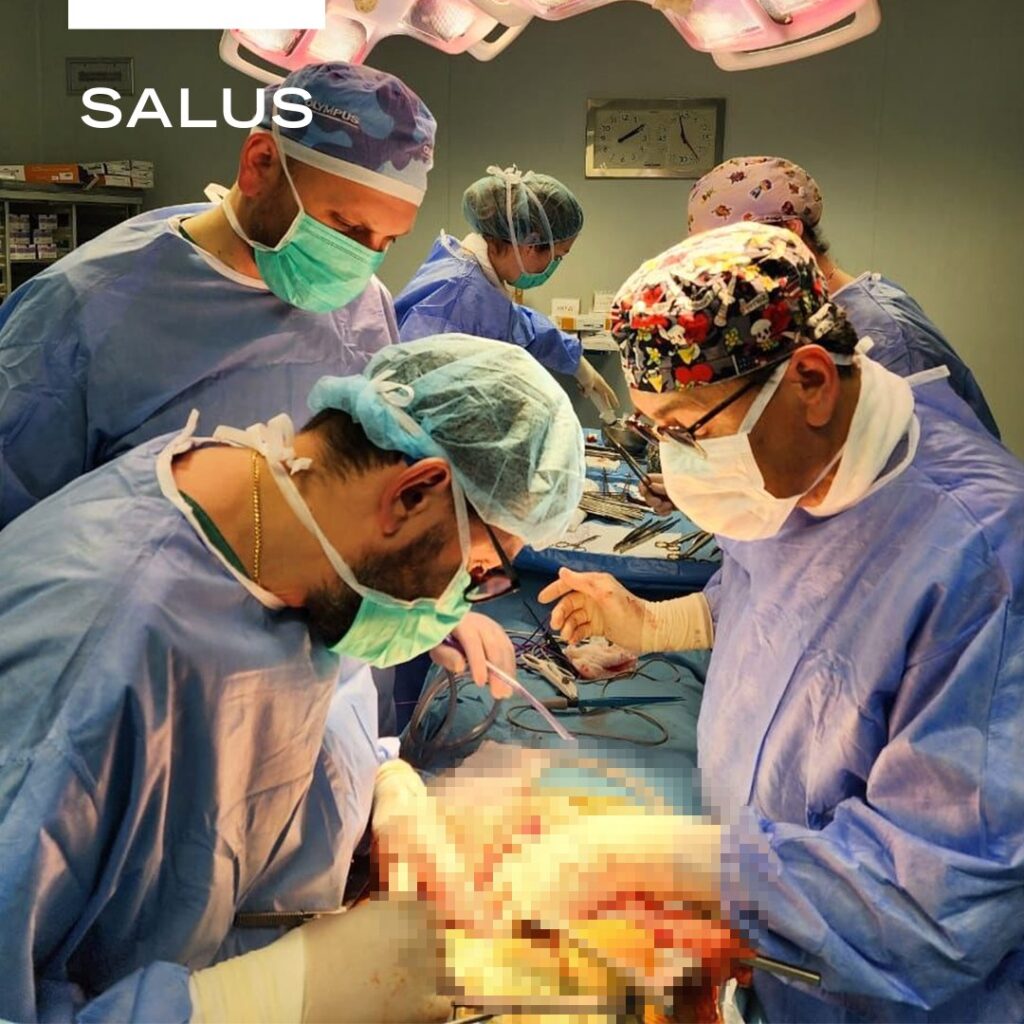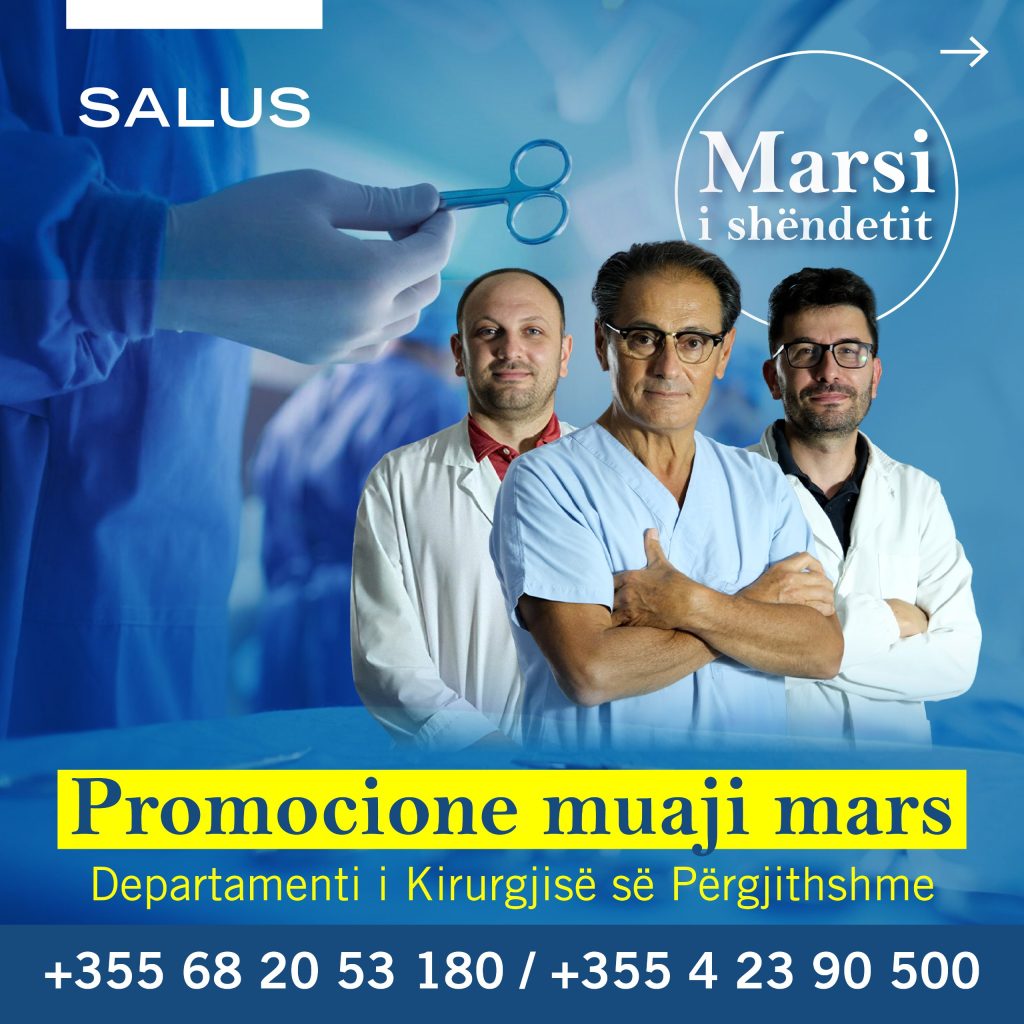GENERAL SURGERY
The Department of General Surgery is a facility able to provide the patient with a complete procedure that begins with a simple diagnostic visit for possible surgical treatment and extends to post-operative hospitalization. Surgical interventions are performed using traditional or mini-invasive techniques, always respecting the patient and, where possible, giving priority to techniques and methods that enable a shorter hospital stay, a faster return to previous life, a more effective outcome good aesthetic and less post-operative pain. The facility has latest equipment and devices for laparoscopic surgery, and surgical solutions are always provided in collaboration with the imaging department, the gastro-hepatology department, the oncology department and the laboratory.
All laparoscopic surgeries are carried out with the latest technology, HD cameras and film images that are always recorded. In both traditional and laparoscopic classical operations, ” High energy surgical devices ” are used, which maximize the operating time. Also used are avant-garde structures and equipment manufactured by renowned firms. Sewing materials, tools and prosthetic materials are treated in the same way.
Pathologies treated:
- Digestive Apparatus
- Abdominal Surgery
- The Endocrine System
- Breast
- The Venous System
- Inferior limb surgery
Types of Surgery:
Malignant tumor of the esophagus
• Malignant tumor of the heart and stomach
• Malignant tumor of the small intestine, colon and rectum
• Malignant liver tumor
• Malignant pancreatic tumor
• Malignant breast tumor (with possible prosthetic application)
Among the methods used, especially for colon tumors, an important place is occupied by laparoscopic therapies. Laparoscopic surgery is a variant of classical surgery, open surgery. It consists of making a few incisions or small incisions and then filling with gas, abdominal carbon dioxide and using special instruments to perform the surgical procedure.
The Department of General Surgery collaborates with the Department of General Medicine on chemotherapy before and / or after surgical intervention for tumor pathology using the most advanced international therapeutic protocols and under the supervision of Italian oncologists.
In colon and rectum cancer, the success of surgery is one of the factors that determines the longevity and the patient’s ability to escape the disease. All cases of rectal cancer are discussed by a multidisciplinary staff, and patients with advanced cancer undergo chemotherapy or neoadjuvant radiotherapy first, followed by gold standard surgery. Our team has a very diverse experience in colon and rectal surgery, well-examined cases with laparoscopic colon and rectal cancer cases are also applied.
Cholecystectomy
• Appendicectomy
• Lymphadenectomy
• Inflammatory and degenerative pathology of the digestive tract (esophagus, stomach, small intestine)
• Benign hepato-pancreatic pathology (pancreatitis, benign liver tumors, etc.)
• Adrenal gland pathology
Laparoscopic techniques are among the methods used, especially for calculators.
Surgery occupies a key place in the treatment of gastric cancer. At our hospital, all western country protocols apply to the management of gastric cancer. Preoperative staging is performed for each patient before surgery, and if the cancer is advanced, neoadjuvant chemotherapy and then surgery are performed. Our staff is dedicated to doing what in gastric cancer surgery is the most important thing, radical or oncological surgery by doing what is called lymphadenectomy.
Among the most common pathologies are biliary system pathologies. So the gallbladder and the biliary tract. In our hospital all cholecystectomies are performed with a mini-invasive laparoscopic method. Also, except for the gallbladder and gallbladder stones, our hospital has a procedure that is ongoing, ie, the release of gallstones through an endoscopic procedure called ERCP and then laparoscopic cholecystectomy to finally resolve problem.
Hernia of the abdominal parietal
• Laparocel
Surgery for inguinal and crural hernia (or adiposity as it is otherwise known) is usually done with Day Surgery (or intra-day intervention).
- Partial or subtotal resection of the thyroid (hemithyroidectomy)
- Complete or total removal of the thyroid (total thyroidectomy)
Thyroid surgery, or thyroid pathologies are successfully treated with thyroid cancer and benign thyroid diseases involving multimodular struma, according to the endocrinologist who is stable in our structure. The most fatal thyroid complications are loss of voice, hemorrhage, and the need to get calcium permanently as a result of parathyroid damage. Since in our Hospital the percentage of these complications is 0, go to Salus Hospital before choosing a place to perform surgery.
- Lower limb varices (safenectomy)
• Surgical intervention with local anesthesia for removal of: lipomas, sebaceous or adipose cysts, hidradenites, superficial lymphonodal biopsy.
• Removal of breast nodules
• Esophageal surgery
• Esophageal strictures and stenoses
We also treat diseases of the esophagus, or the digestive tract which are divided into 2 groups, malignant diseases and benign diseases. Esophageal cancer is treated surgically in our hospital by two methods, which are either trans-hyatal (Orringer method) or thoracotomy (Ivor-Lewis).
We also operate benign esophageal strictures and stenoses. Treatment of esophageal strictures or complete / partial narrowing of the feeding tube due to incorrectly or intentionally ingesting corrosive substances is quite difficult. Usually these patients are forced to feed throughout the life through the tube they place in the stomach.





